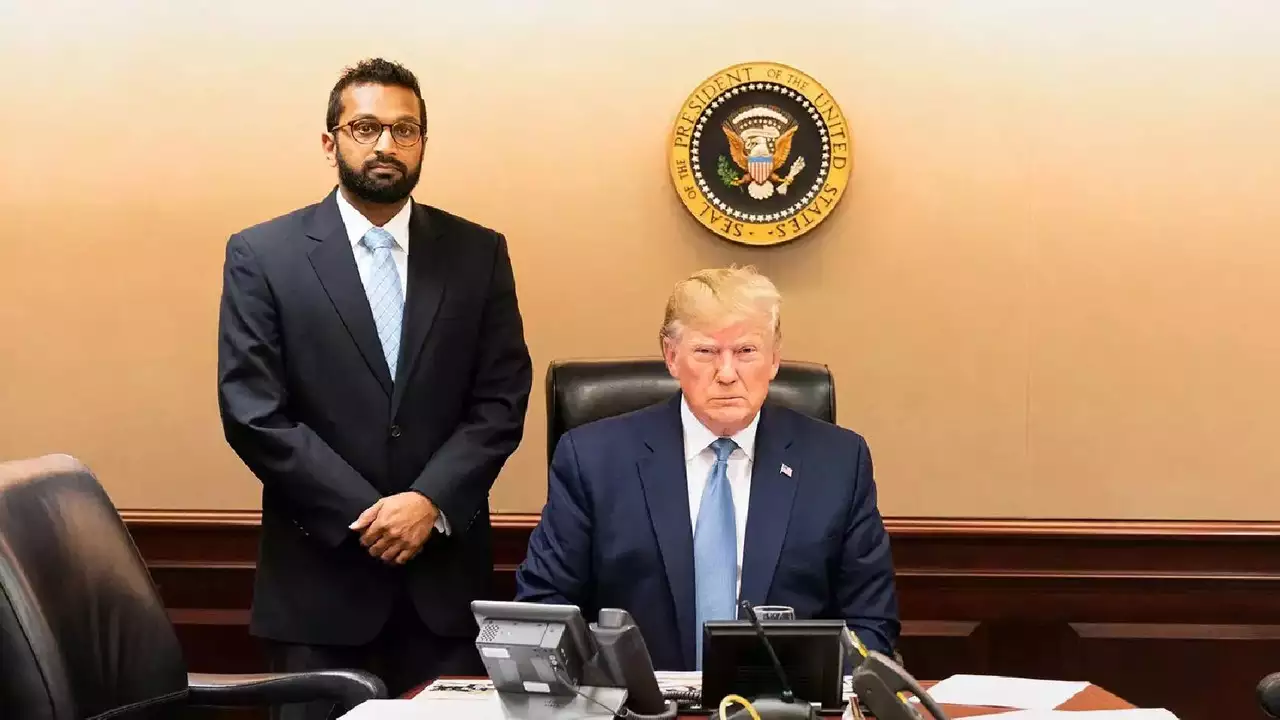November 8, 2024
In a recent interview, former Trump administration official Kash Patel revealed that a second term for President Donald Trump would prioritize “unprecedented government transparency,” with large-scale declassification efforts aimed at revealing hidden information. Patel, rumored to be Trump’s top pick for deputy director of the CIA, emphasized that declassification would be essential for restoring public trust and accountability in government agencies.
Speaking with political commentator Benny Johnson, Patel explained that their plans include disclosing long-protected records, including the controversial Epstein files, the “Diddy list,” and sensitive FBI and Department of Justice documents.
“We need to put that out there,” Patel said, referring to surveillance documents reportedly implicating the DOJ and FBI in what he described as unlawful surveillance of over 275,000 Americans. “I’m not saying we reveal the exact methods, but we can keep the hood on the engine while showing the American people how their rights were violated.”
Focus on Restoring Public Trust
During the interview, Patel discussed how this wave of declassification would extend across multiple government departments, including Agriculture, Education, and Labor. The goal, he said, would be to not only expose historical corruption but also improve transparency around the use of taxpayer funds. He argued that the American public is desperate for transparency from federal institutions, adding that Trump’s administration would work to rebuild trust in Washington.
Patel, a key figure in exposing issues related to the FBI’s handling of the “Russiagate” investigation, emphasized that a new Trump administration would have a similar approach to transparency. Patel himself was instrumental in revealing information about the origins of the investigation, alongside former House Intelligence Committee Chairman Devin Nunes. This legacy of uncovering information, Patel suggested, aligns with Trump’s mandate for government transparency.
“America had a chance to retire the dynastic families that have corrupted Washington, D.C. for 50 to 60 years,” said Patel. “The mandate given to Donald Trump is this: the people want the truth.”
Congressional Role in Oversight
Patel underscored the critical role that a Republican-led Congress would play in this pursuit of transparency, suggesting that Trump’s administration would be prepared to work closely with Congress to implement oversight investigations. He argued that cabinet members should actively collaborate with congressional oversight bodies to ensure transparency in budgeting and accountability across agencies.
“Imagine what could be achieved with a director or secretary who actually collaborates with a Republican chairman or chairwoman on oversight,” Patel remarked. “This isn’t just about exposing corruption but also about seeing how we budget and stop burning through taxpayer money.”
Potential Implications
The implications of these declassification plans are broad. While many applaud the idea of exposing decades of hidden information, some legal experts caution that revealing classified materials could pose risks. Patel responded by noting that while transparency is the goal, care would be taken to protect specific intelligence methods to avoid compromising national security.
A Vision for Renewed Government Accountability
Trump’s commitment to transparency aligns with a populist vision of government that prioritizes the people’s right to information over institutional secrecy. Patel suggested that this approach marks a distinct shift from the “dynastic families” of Washington and that the public’s demand for change has reached a tipping point.
“The American people want a government they can trust. The only way to achieve that is to lift the veil on the past,” Patel concluded.
As Trump’s transition team forms, the anticipation of sweeping declassifications signals a commitment to reshaping how government operates, promising a new era of accountability for American citizens.

